12 Fantastic Fermented Foods To Supercharge Your Microbiome
In recent years, the term "microbiome" has become a buzzword in health and wellness circles. This complex community of trillions of microorganisms residing in our gut is crucial for our overall health, influencing everything from digestion to mental health. Maintaining a balanced microbiome is essential for optimal health, and one of the best ways to achieve this is through diet. Fermented foods have been consumed for centuries across various cultures, celebrated for their unique flavors and health benefits. This article explores 12 fantastic fermented foods that can help you master your microbiome. These foods not only enhance digestion but also bolster the immune system, reduce inflammation, and even improve mood. As we delve into each fermented food, we'll uncover their individual benefits, how they contribute to gut health, and tips for incorporating them into your diet. Let's embark on this journey to discover how these microbial marvels can transform your health from the inside out.
1. Yogurt: The Creamy Probiotic Powerhouse
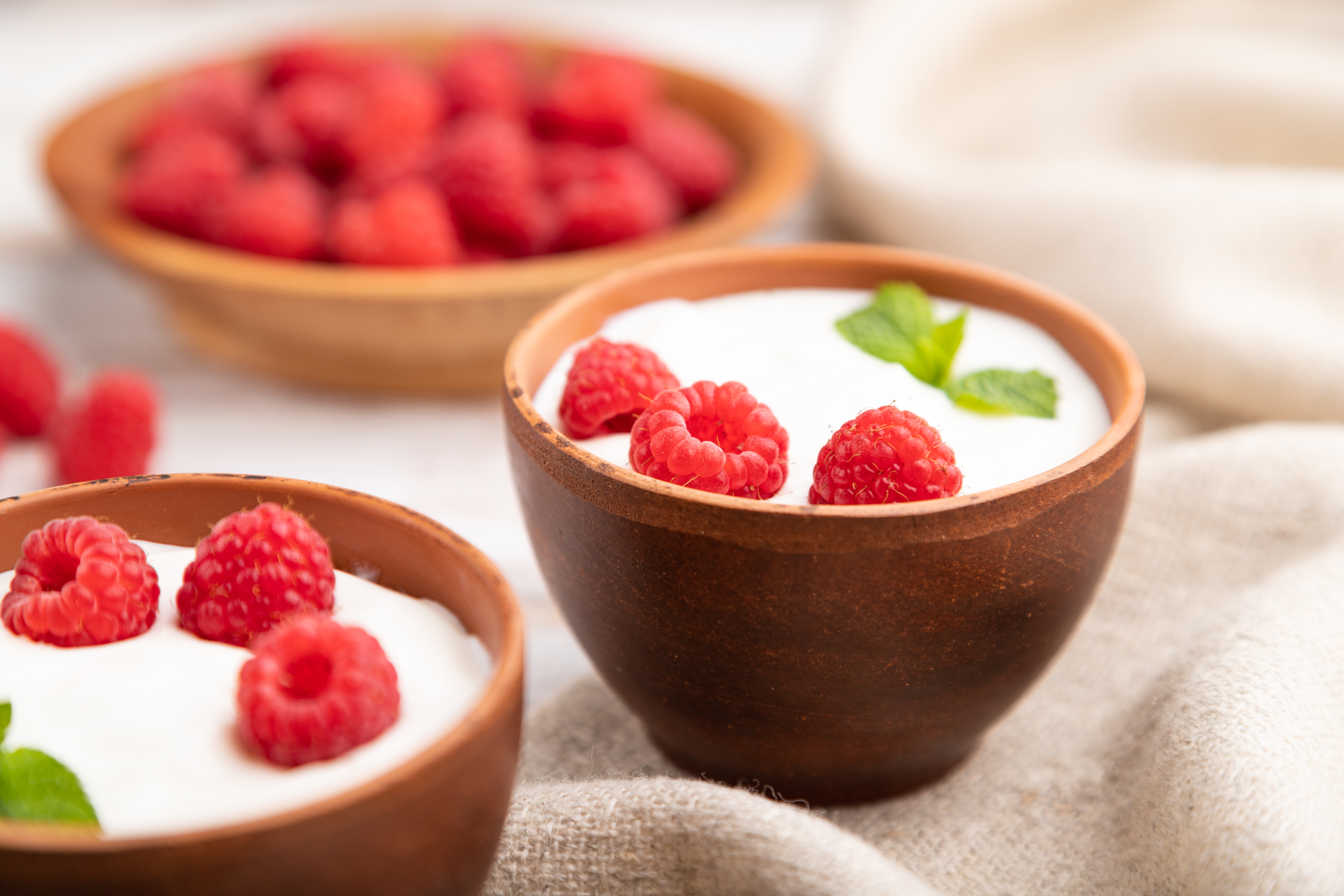
Yogurt is perhaps the most well-known fermented food, revered for its creamy texture and probiotic content. Made from milk fermented by lactic acid bacteria, yogurt is a versatile food that can be enjoyed on its own or as part of a meal. Its probiotics, primarily Lactobacillus and Bifidobacterium strains, are known to improve digestion and enhance the gut microbiome. Regular consumption of yogurt has been linked to numerous health benefits, including better digestion, improved immune function, and a reduced risk of certain diseases. Its high calcium content also supports bone health. To reap the maximum benefits, opt for plain, unsweetened yogurt with live and active cultures.
2. Kefir: The Tangy Fermented Milk Drink
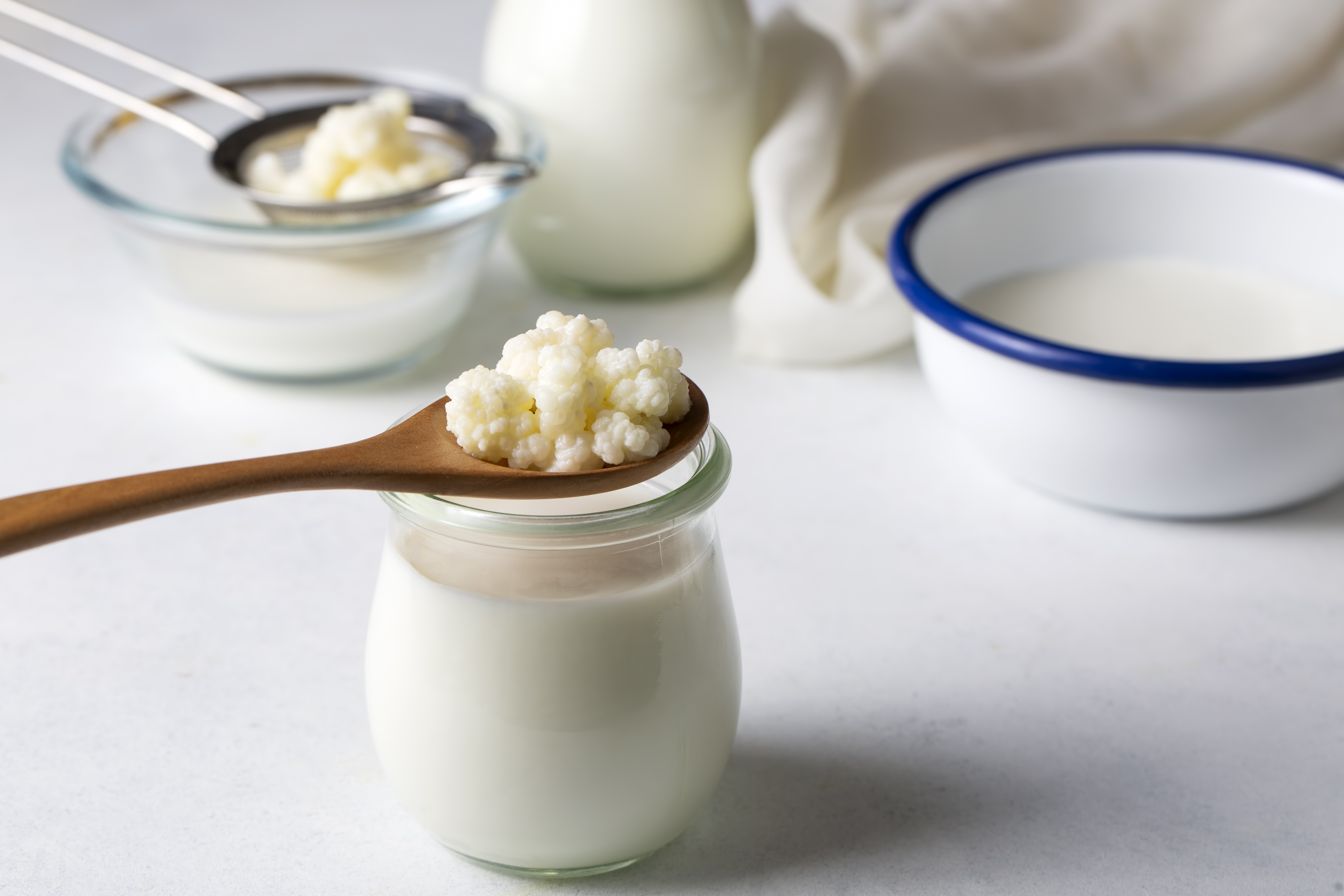
Kefir is a fermented milk drink similar to yogurt but with a thinner consistency and a tangier taste. Originating from the Caucasus Mountains, kefir is made by fermenting milk with kefir grains—a combination of bacteria and yeast. This unique fermentation process results in a drink rich in probiotics, including several strains not typically found in yogurt. Kefir is known for its ability to improve lactose digestion, making it a suitable option for those with lactose intolerance. It also boasts a wide range of health benefits, from enhancing gut health to boosting the immune system and even reducing inflammation. Incorporating kefir into your diet can be as simple as enjoying a glass on its own or adding it to smoothies for a probiotic boost.
3. Sauerkraut: The Fermented Cabbage Classic
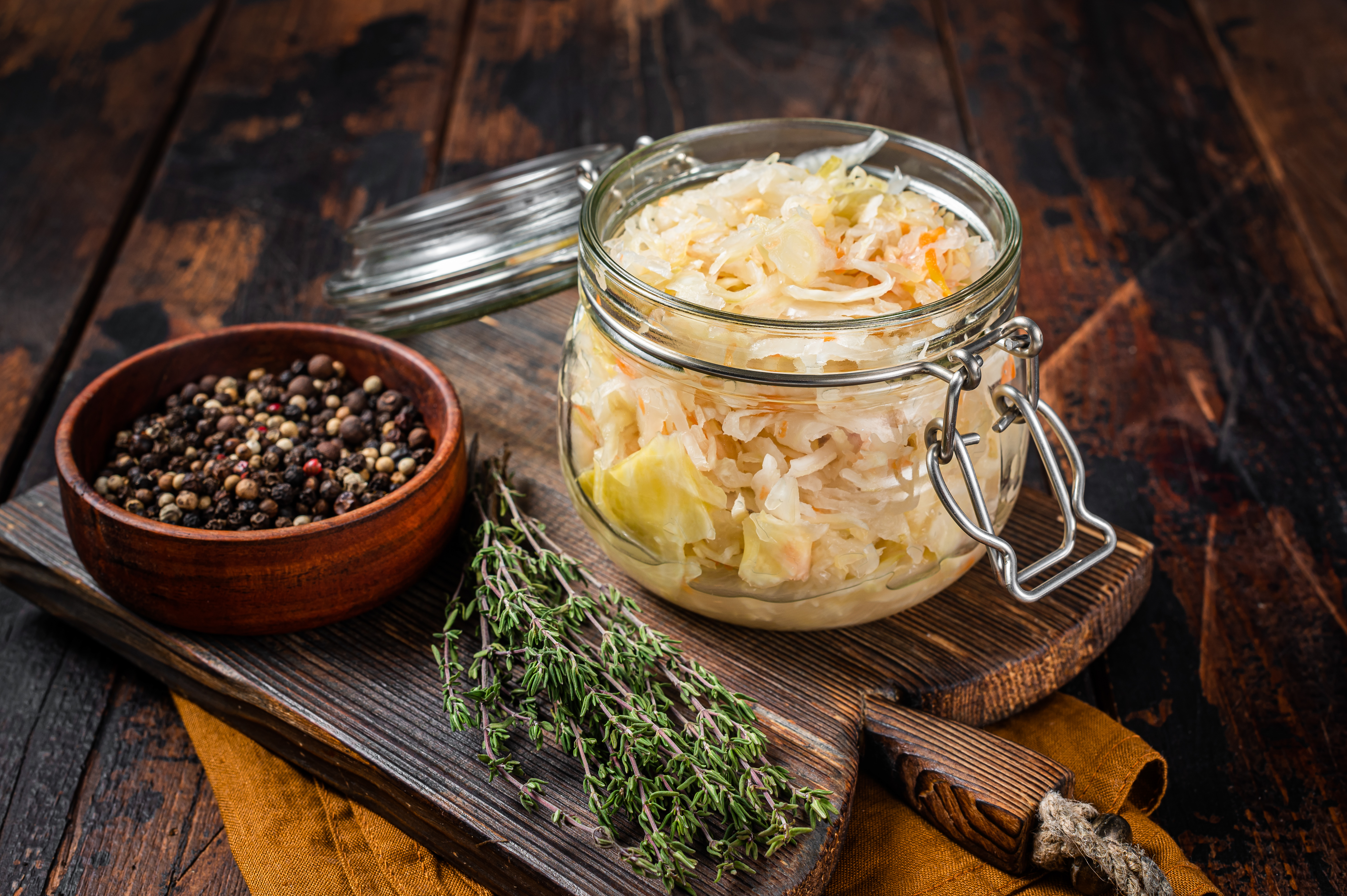
Sauerkraut, a staple in German cuisine, is fermented cabbage that offers a tangy flavor and a wealth of health benefits. The fermentation process not only preserves the cabbage but also enhances its nutritional value, making it rich in vitamins C and K, as well as beneficial probiotics. Sauerkraut's probiotics help balance the gut microbiome, improve digestion, and support immune function. Additionally, its high fiber content promotes regular bowel movements and aids in maintaining a healthy weight. To enjoy its full benefits, choose raw, unpasteurized sauerkraut, as pasteurization can destroy beneficial bacteria. Sauerkraut can be enjoyed as a side dish, a topping for sandwiches, or even added to salads for a probiotic punch.
4. Kimchi: The Spicy Korean Staple
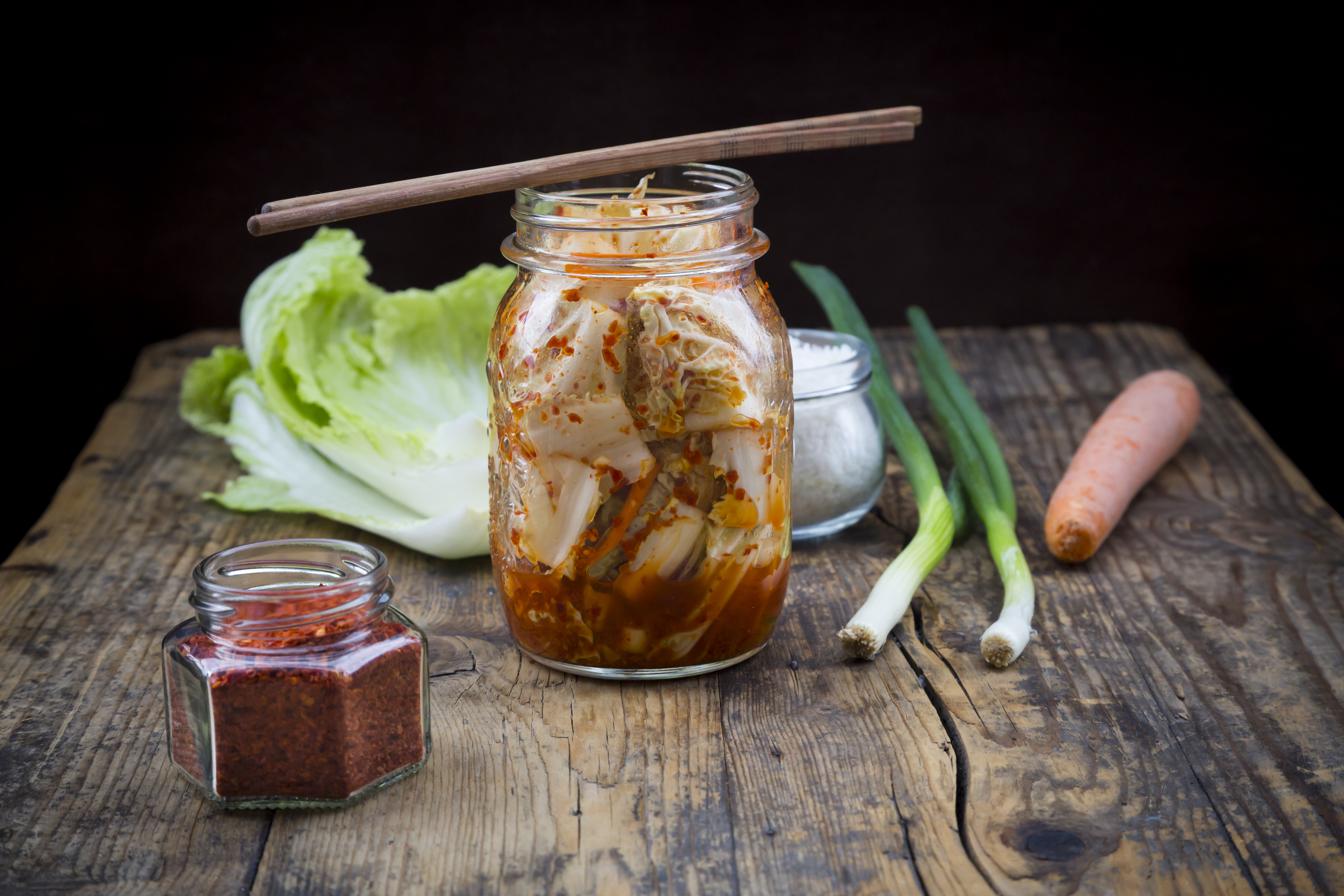
Kimchi, a traditional Korean dish, is a spicy, fermented vegetable mix that typically includes napa cabbage and radishes. Seasoned with chili pepper, garlic, ginger, and other spices, kimchi offers a unique flavor profile and numerous health benefits. The fermentation process enhances the nutritional content of the vegetables, making kimchi rich in vitamins A, B, and C, as well as probiotics. These probiotics contribute to a healthy gut microbiome, improve digestion, and support immune health. Kimchi's high fiber content also aids in weight management and promotes regular bowel movements. Incorporating kimchi into your diet is easy—enjoy it as a side dish, in stir-fries, or even as a topping for burgers and tacos.
5. Miso: The Umami-Rich Fermented Soybean Paste
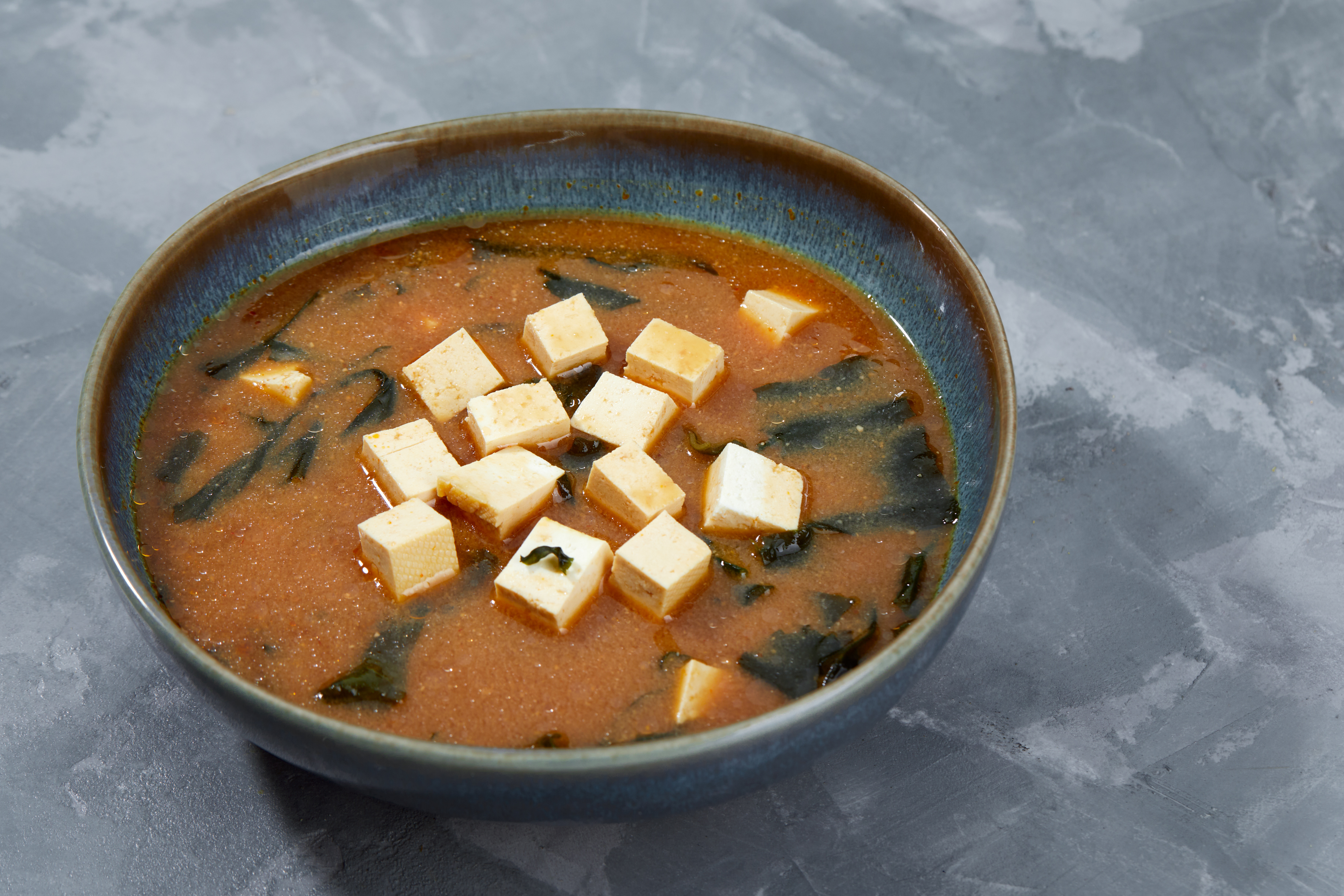
Miso is a traditional Japanese seasoning made by fermenting soybeans with salt and koji, a type of fungus. This fermentation process results in a thick paste rich in umami flavor, which is used to enhance the taste of soups, sauces, and marinades. Miso is packed with probiotics, particularly Lactobacillus and Bifidobacterium strains, which support gut health by promoting the growth of beneficial bacteria. It is also a good source of essential nutrients, including vitamins B, E, and K, as well as minerals like copper, manganese, and zinc. To preserve its probiotic content, add miso to warm dishes rather than boiling ones. Incorporate miso into your diet by enjoying a comforting bowl of miso soup or using it as a flavorful marinade for meats and vegetables.
6. Tempeh: The Protein-Packed Fermented Soybean Cake
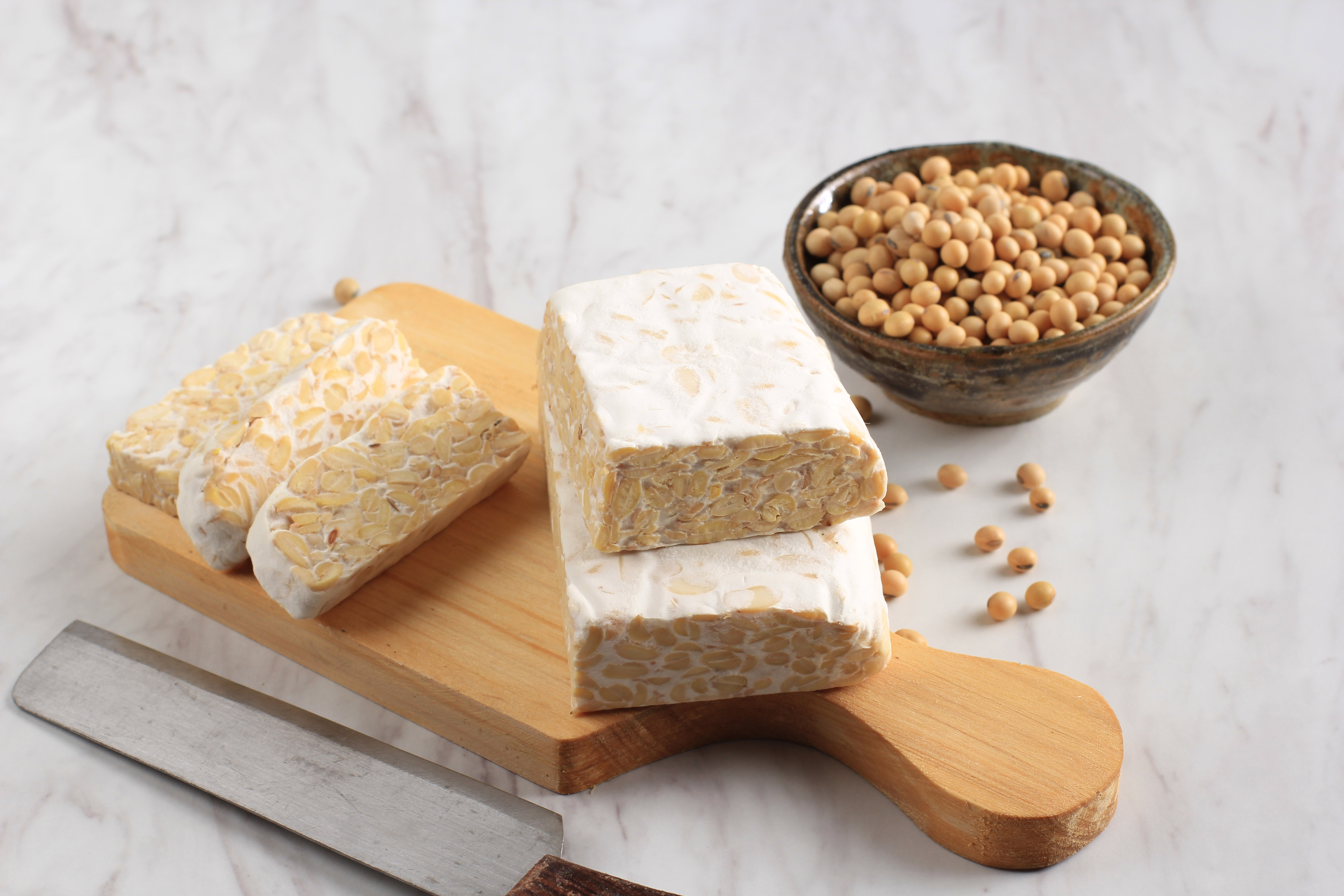
Tempeh is a fermented soybean product originating from Indonesia, known for its firm texture and nutty flavor. Made by fermenting cooked soybeans with a specific type of mold, tempeh is a protein powerhouse, making it a popular meat substitute for vegetarians and vegans. The fermentation process not only increases the protein content but also enhances the bioavailability of nutrients, making tempeh a rich source of vitamins B2, B6, and B12, as well as minerals like magnesium and phosphorus. Tempeh's probiotics contribute to a healthy gut microbiome, improve digestion, and support immune health. Enjoy tempeh by slicing it into stir-fries, grilling it for sandwiches, or crumbling it into salads for a protein boost.
7. Kombucha: The Fizzy Fermented Tea

Kombucha is a fermented tea that has gained popularity for its refreshing taste and potential health benefits. Made by fermenting sweetened tea with a symbiotic culture of bacteria and yeast (SCOBY), kombucha is a fizzy drink rich in probiotics, antioxidants, and organic acids. These components contribute to a healthy gut microbiome, improve digestion, and support detoxification. Kombucha's probiotics, primarily from the Lactobacillus and Acetobacter strains, help balance gut bacteria and enhance immune function. Enjoy kombucha as a refreshing beverage on its own or use it as a mixer in cocktails for a probiotic twist. When choosing kombucha, opt for brands with low sugar content to maximize health benefits.
8. Natto: The Fermented Soybean with a Sticky Twist
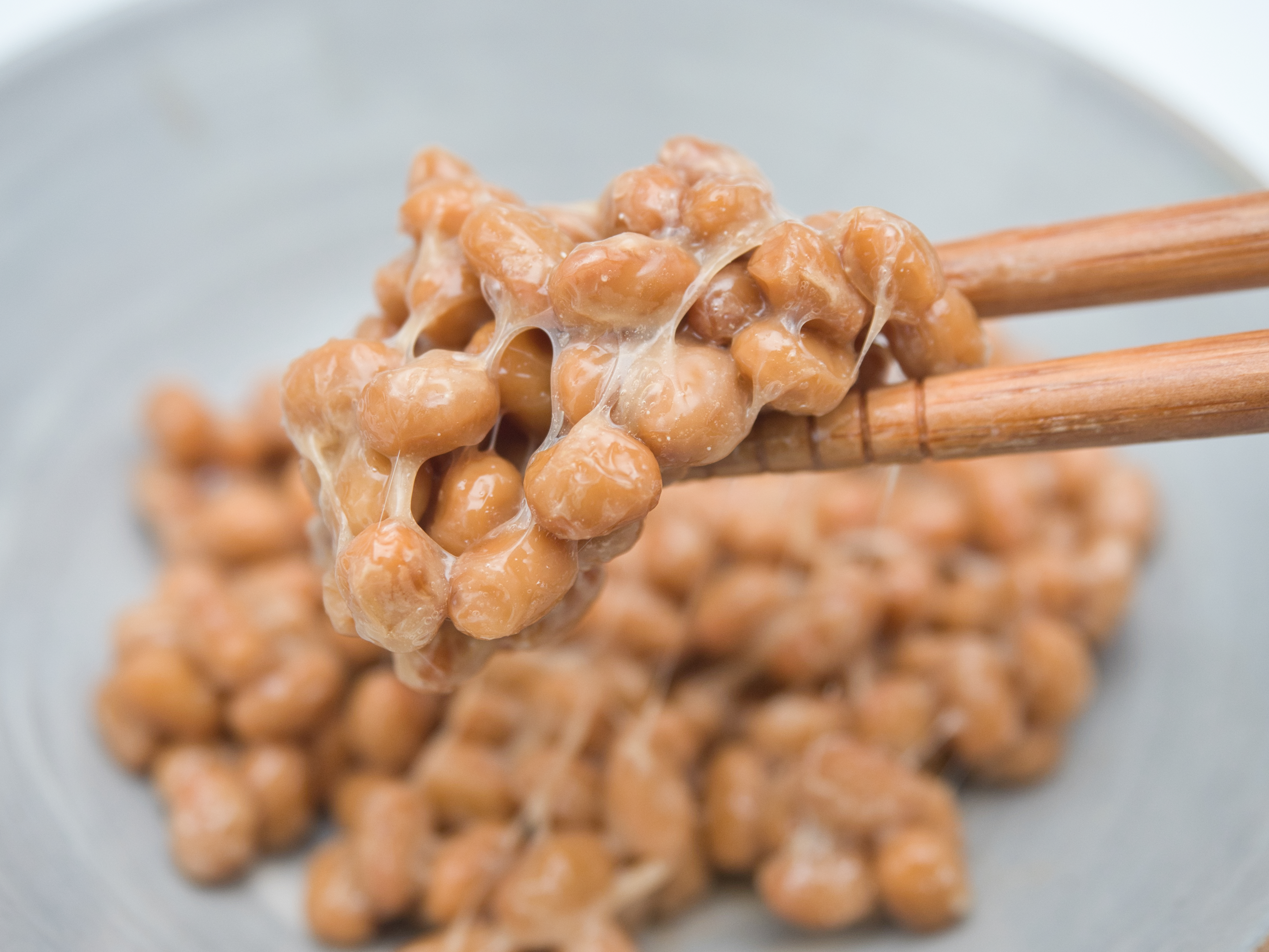
Natto is a traditional Japanese food made from fermented soybeans, known for its distinctive smell, sticky texture, and strong flavor. Despite its acquired taste, natto is a nutritional powerhouse, rich in protein, fiber, vitamins K2 and B6, and minerals like iron and calcium. The fermentation process produces a unique enzyme called nattokinase, which has been linked to improved heart health and reduced blood clot risk. Natto's probiotics, particularly Bacillus subtilis, support gut health by promoting the growth of beneficial bacteria and enhancing digestion. Incorporate natto into your diet by enjoying it with rice, adding it to salads, or using it as a topping for toast.
9. Pickles: The Crunchy Probiotic Snack
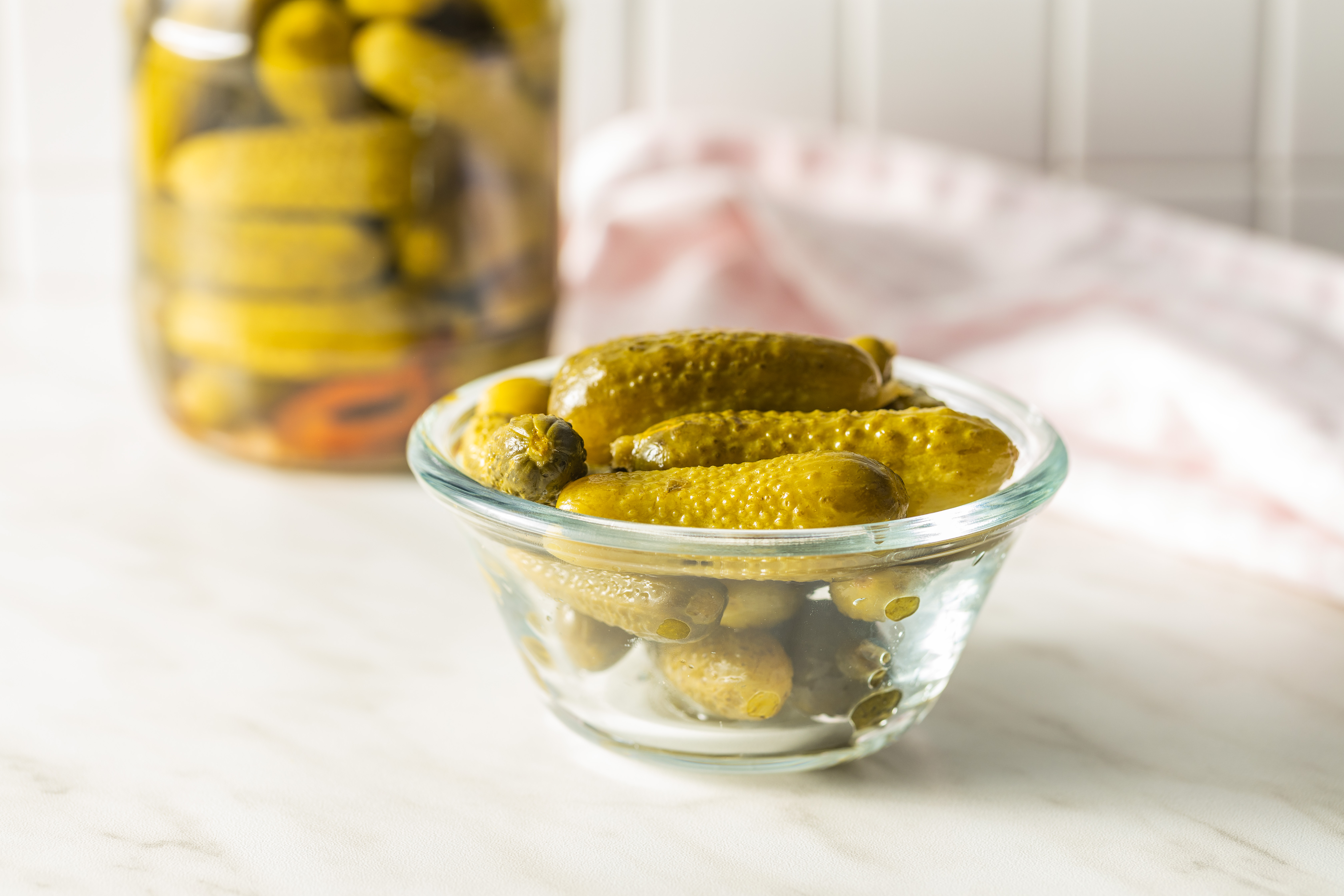
Pickles, cucumbers preserved in a brine or vinegar solution, are a popular snack with a tangy flavor and crunchy texture. When naturally fermented, pickles are a good source of probiotics, particularly Lactobacillus strains, which support gut health by promoting the growth of beneficial bacteria. Fermented pickles also contain vitamins A and K, as well as antioxidants that support immune function and reduce inflammation. To enjoy the probiotic benefits of pickles, choose those that are naturally fermented and free from artificial preservatives. Incorporate pickles into your diet by enjoying them as a snack, adding them to sandwiches, or using them as a topping for burgers and tacos.
10. Lassi: The Refreshing Fermented Yogurt Drink
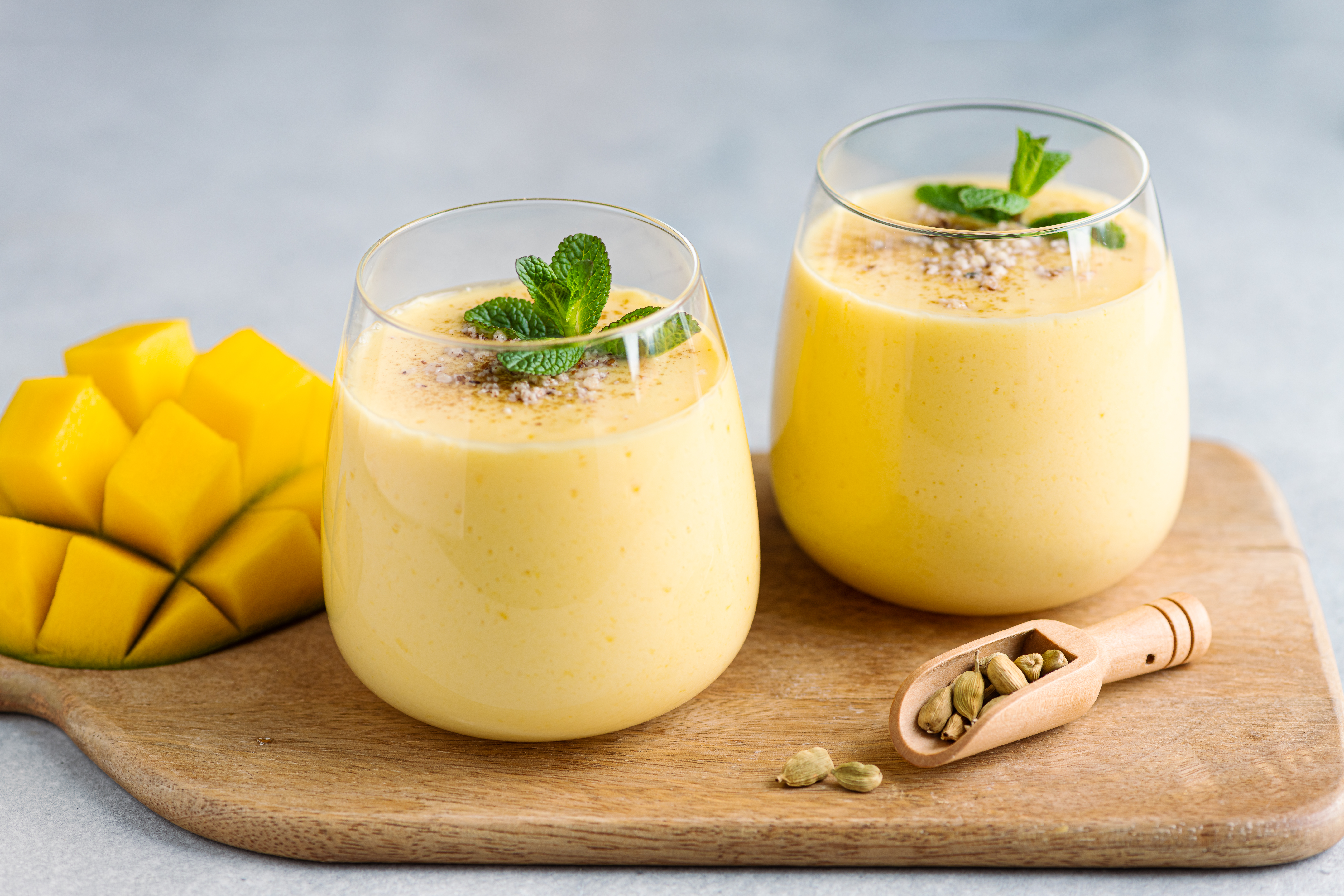
Lassi is a traditional Indian beverage made from yogurt, water, and spices, offering a refreshing and probiotic-rich drink. This fermented yogurt drink is not only delicious but also packed with probiotics, particularly Lactobacillus strains, which support gut health by promoting the growth of beneficial bacteria. Lassi is also a good source of calcium, protein, and vitamins B2 and B12, which support bone health and energy metabolism. Enjoy lassi as a refreshing drink on its own or use it as a base for smoothies for a probiotic boost. To maximize health benefits, choose plain lassi without added sugars or artificial flavors.
11. Kvass: The Fermented Beverage from Eastern Europe
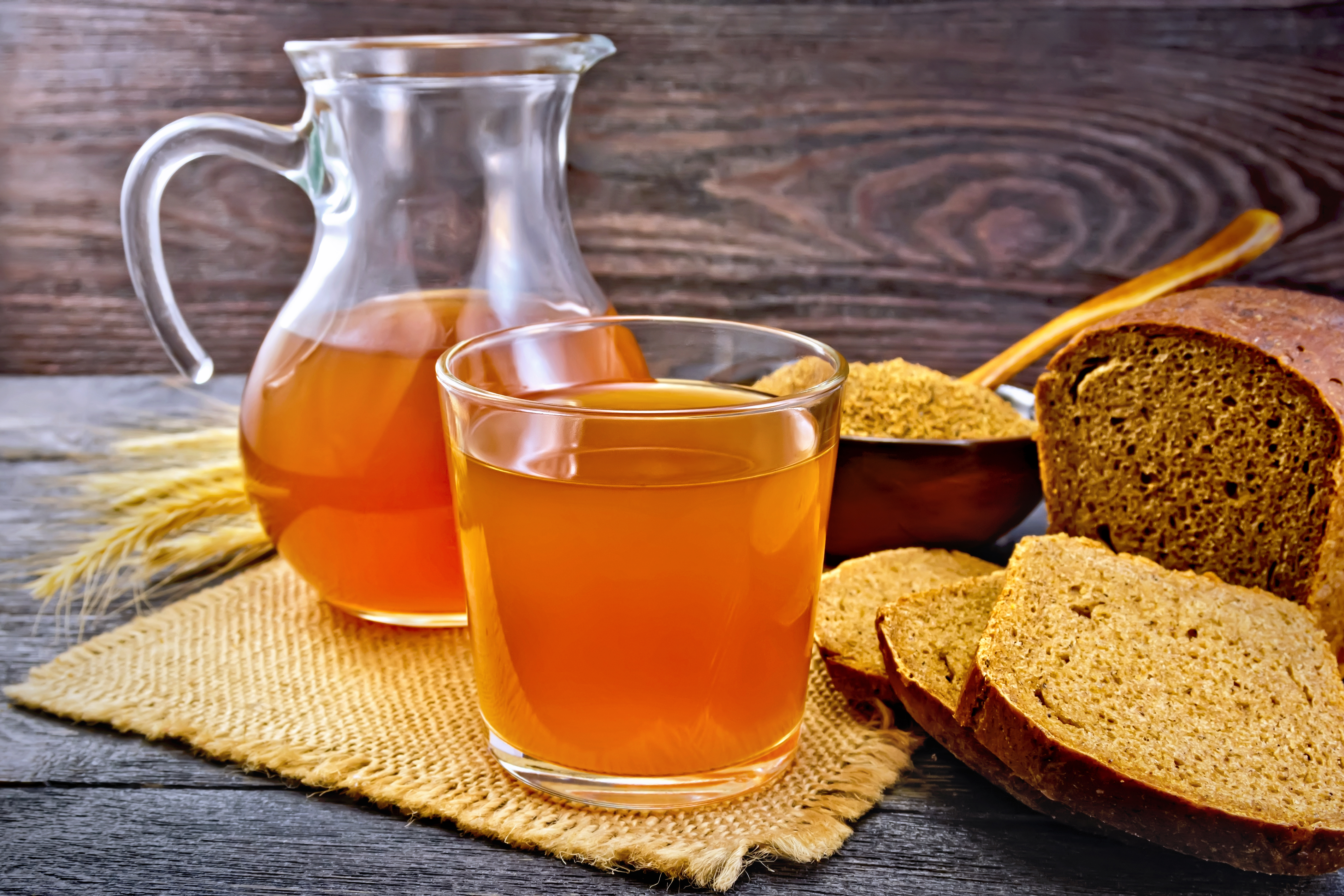
Kvass is a traditional Eastern European beverage made from fermented rye bread, offering a unique flavor and potential health benefits. This fermented drink is rich in probiotics, particularly Lactobacillus strains, which support gut health by promoting the growth of beneficial bacteria. Kvass also contains B vitamins, antioxidants, and organic acids that support immune function and reduce inflammation. Enjoy kvass as a refreshing beverage on its own or use it as a base for soups and stews for a probiotic twist. When choosing kvass, opt for brands with low sugar content to maximize health benefits.
12. Puto: The Fermented Rice Cake Delight
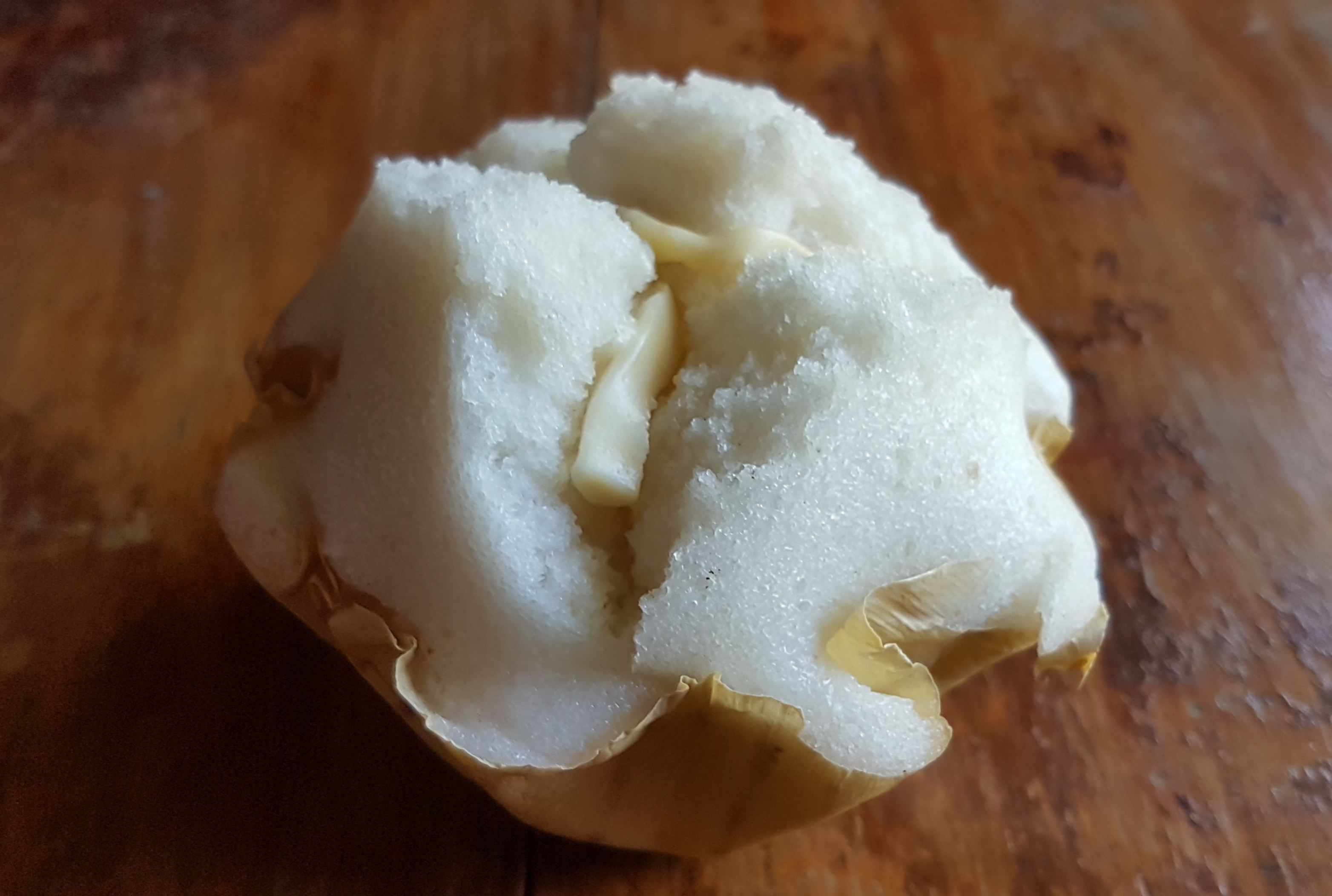
Puto, a traditional Filipino rice cake, is a lesser-known but fantastic fermented food that offers both delicious taste and gut health benefits. Made by fermenting rice with water and allowing natural lactic acid bacteria to do their work, puto has a slightly tangy flavor and a fluffy texture. This fermentation process enhances the bioavailability of nutrients and creates probiotics that promote a healthy gut microbiome. Puto is a versatile food often enjoyed as a snack, side dish, or accompaniment to savory Filipino dishes like dinuguan (pork blood stew). Incorporating puto into your diet adds a unique, culturally rich option to your fermented food repertoire while supporting digestion and overall gut health.
Embracing Fermented Foods for Gut Health

Incorporating fermented foods into your diet is a delicious and effective way to support gut health and overall well-being. These 12 fantastic fermented foods offer a variety of flavors and textures, making it easy to find options that suit your taste preferences. From yogurt and kefir to sauerkraut and kimchi, each fermented food brings unique health benefits, enhancing the gut microbiome, improving digestion, and supporting immune function. By embracing these gut-friendly heroes, you can take charge of your health and enjoy the myriad benefits of a balanced microbiome. So, why not start your journey to microbiome mastery today by adding these fermented foods to your diet? Your gut will thank you.